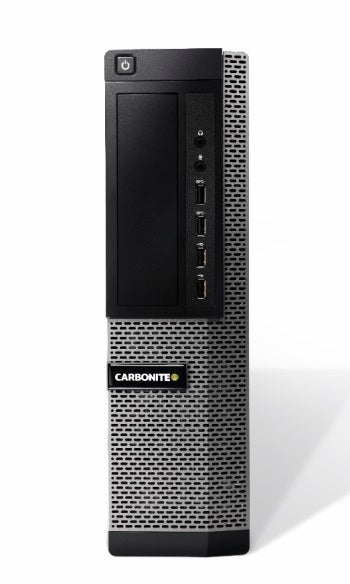
This limit applies to all uploaded and downloaded data for all residential CenturyLink High Speed Internet (HSI) customers except for those excluded below. Quote The CenturyLink Excessive Use Policy (EUP) uses a 1.0 terabyte (TB) monthly data usage limit. This is especially true as SpaceX begins using lasers between satellites and installs terminals directly at data centers, avoiding having to pay any backbone interconnect fees.Ī near-monopoly broadband company may be able to charge the customer 20 times what their actual backend costs are, but that doesn't mean SpaceX can't get by with charging only, say, 2-4 times or whatever and still turning a profit.
#CARBONITE COST PER GB PLUS#
media covering Starlink developments and SpaceX doings) plus word of mouth (all those space and Tesla fans!), so they can afford for their backend costs to be a significant portion of the cost their customer pays. So to respond to Tim Farrar's point, SpaceX is vertically integrated and probably will rely almost entirely on earned advertisement (i.e. This is why Starlink will be able to be extremely competitive in the US anywhere that isn't super high density. These companies are near-monopolies so charge near-monopoly prices plus have a ton of overhead in customer acquisition/advertisement. In the US, you've got to keep in mind that broadband residential internet is very high margin.

Moore's Law, as that can impact both ground and space roughly equally.) (And this is ignoring improvement in throughput from general technology improvement, i.e. from AWS or whoever., which is about 2-15 cents per GB depending on region (ie 200-1500x as much).

That is much cheaper than bulk data center data transfer costs, i.e. If a doubling of bandwidth only requires a 50% more massive satellite, then, roughly speaking a 1 ton satellite could do 200Gbps, so: Starship plus worldwide reach should mean they can compete handily in all but the most dense and most competitive markets, including in markets overseas where cost per GB for all these things is much lower. With Starship, they can probably get both the hardware and the launch costs MUCH lower (although might be limited into how effective they can be at shielding light pollution for how big they can make the Starlink satellites). So what this tells me is that even in the early days, Starlink should *in principle* still be able to compete with everyone *in the US* other than perhaps cities with cable and fiber where there is enough competition for monthly prices to be below $60/month and where per-user data usages are high.


 0 kommentar(er)
0 kommentar(er)
